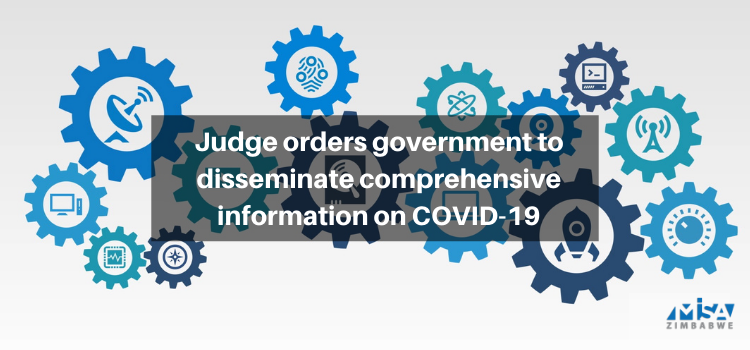High Court judge Justice Dube has ordered the ministers of Health and Information to widely disseminate “comprehensive and adequate information” on both private and public testing, isolation and treatment of COVID-19.
The order was granted on 21 January 2021.
This follows an urgent application filed by MISA Zimbabwe on the basis that the current information and reportage being disseminated on the current public health situation in the country is incomplete, uninformative and inadequate.
The Minister of Health and Child Care and the Minister of Information, Publicity and Broadcasting Services, were cited as first and second respondents, respectively.
The respondents were ordered to:
-
To publish and disseminate on all available platforms, in all official languages, information on the occurrence and prevalence of the Covid-19 virus strain 501Y.V2 in Zimbabwe on a regular basis.
-
If found to be existent in Zimbabwe, the Respondents must communicate the pathology of the Covid-19 virus strain 501Y.V2 as well as measures to be taken by the public in respect of this strain.
-
The Respondents must communicate Covid-19 statistics per each district in Zimbabwe, which statistics should also include gender desegregated data.
-
The Respondents must communicate Covid-19 statistics in relation to immigration and cross border travel and such reports should include the number of returning residents received and their Covid-19 status.
-
The Respondents must communicate additional information listing public and private testing and treatment centres, their capacity and current status of occupation or usage.
The respondents were also ordered to communicate the type and quality of medical equipment, other personnel needed and any further procurements that have been made since the commencement of the current national lockdown.









